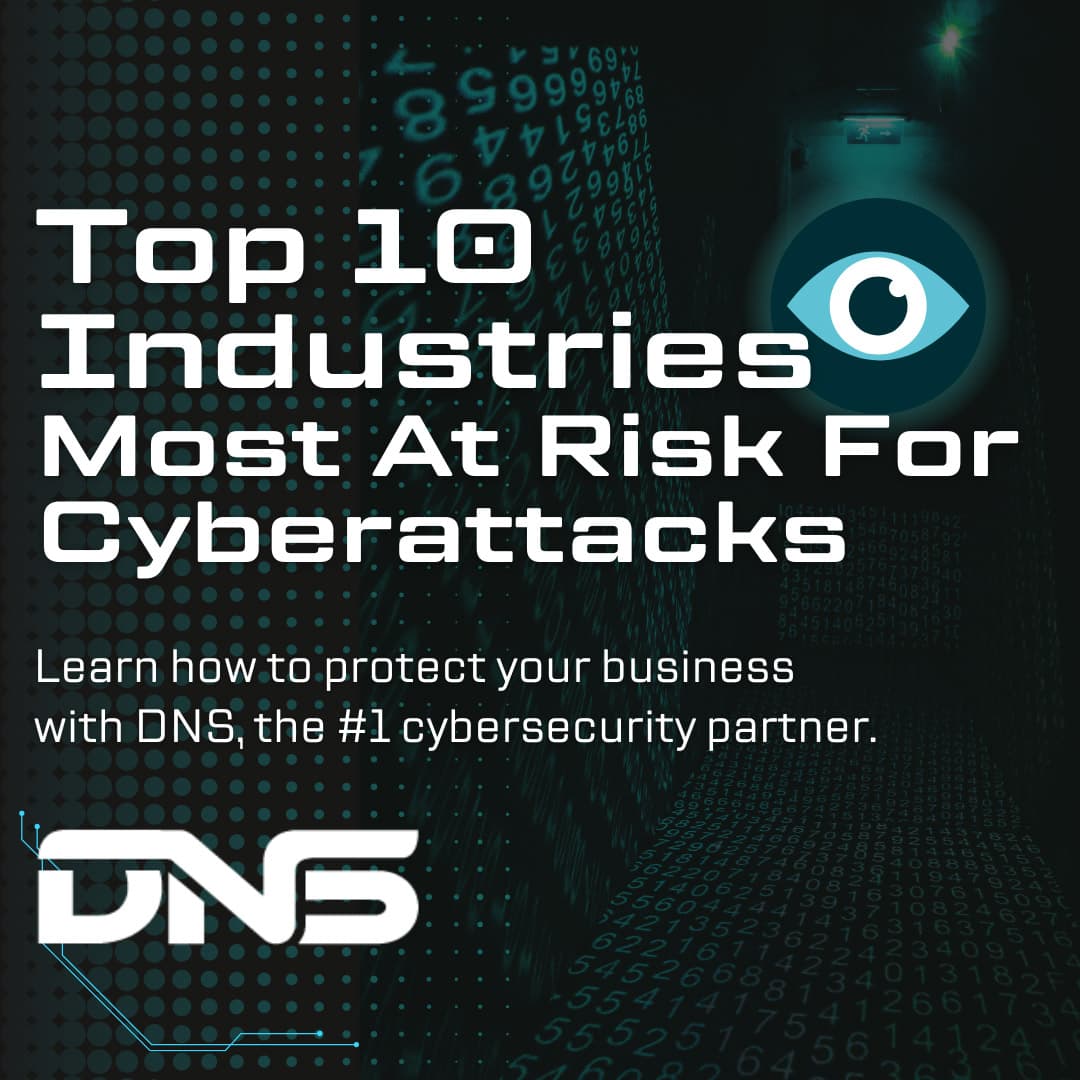The Top 10 Industries Most at Risk for Cyberattacks
The Top 10 Industries Most at Risk for Cyberattacks: How to Protect Your Business with DNSNetworks
As the world becomes increasingly digital, cyber-attacks have become a significant threat to businesses and organizations of all sizes. A cyber attack can cause serious damage to a company’s reputation and finances and even put individuals’ data at risk. This blog post will look at the top 10 industries most at risk for cyberattacks and explore why they’re vulnerable.
Healthcare
One of the most at risk for cyberattacks is the healthcare industry. The healthcare industry is vulnerable to cyber attacks due to the vast amount of sensitive patient data that they handle. Hackers can target healthcare providers to gain access to patients’ medical records, including their social security numbers and insurance details. Cyber attacks on healthcare providers can have significant consequences, including the loss of patients’ trust and potential lawsuits.
Finance
The finance industry is another sector that’s vulnerable to cyber attacks due to the large amounts of financial data they handle. Cybercriminals can target banks, credit card companies, and other financial institutions to gain access to sensitive customer information and commit fraud. The financial industry is also a significant target for ransomware attacks, which can cause severe financial losses.
Energy and Utilities The energy and utilities sector is vulnerable to cyber attacks due to the critical infrastructure they operate. Cyber attacks on energy and utility companies can cause widespread power outages, environmental damage, and even loss of life. The energy and utilities sector has also become a target for nation-state actors looking to disrupt critical infrastructure and cause chaos.
Government
Government agencies are vulnerable to cyber attacks due to the sensitive information they handle and the critical services they provide. Cyber attacks on government agencies can lead to the theft of sensitive government data, including national security information. A cyber attack on a government agency can have significant national security implications and potentially put lives at risk.
Retail
The retail industry is another sector that’s vulnerable to cyber attacks due to the large amounts of customer data they handle. Retailers can be targeted by cybercriminals looking to steal customers’ credit card information or personal data. A cyber attack on a retailer can lead to significant financial losses and a loss of customers’ trust.
Education
The education industry is becoming increasingly digital, making it vulnerable to cyber attacks. Educational institutions store vast amounts of personal data on their students and staff, including social security numbers and academic records. Cyber attacks on educational institutions can cause a significant loss of trust among students and their families.
Manufacturing
The manufacturing industry is vulnerable to cyber attacks due to the sensitive intellectual property and trade secrets they store. Cybercriminals can target manufacturing companies to gain access to sensitive information and steal valuable trade secrets. A cyber attack on a manufacturing company can lead to significant financial losses and a loss of competitive advantage.
Transportation
The transportation industry is becoming increasingly digital, making it vulnerable to cyber attacks. Cyber attacks on transportation companies can cause significant disruptions to supply chain operations, resulting in delayed shipments and lost revenue. A cyber attack on a transportation company can also cause significant damage to the company’s reputation.
Hospitality
The hospitality industry is vulnerable to cyber attacks due to the large amounts of personal and financial data they handle. Hotels, restaurants, and travel agencies collect and store sensitive customer data, including credit card information and passport details. A cyber attack on a hospitality company can lead to significant financial losses and a loss of customers’ trust.
Small and Medium-sized Enterprises (SMEs)
Small and medium-sized enterprises (SMEs) are also vulnerable to cyber attacks. These businesses often have fewer cybersecurity resources and less robust security measures in place, making them an easier target for hackers. SMEs may also be part of a supply chain that includes larger companies, which can make them vulnerable to cyber attacks aimed at accessing the larger company’s systems.
Protect Your Business with DNSNetworks – Your Trusted Cybersecurity Partner
n conclusion, cyber attacks significantly threaten businesses and organizations in various industries. Companies must prioritize cybersecurity and implement robust security measures to protect themselves and their customers from cyber threats. If you’re looking for a reliable and experienced partner to help you protect your business from cyber attacks, consider DNSNetworks. DNSNetworks is a leading provider of Ottawa cybersecurity services, including managed detection and response, penetration testing, and vulnerability assessments. Contact DNSNetworks today to learn more about how they can help you protect your business from cyber attacks.

